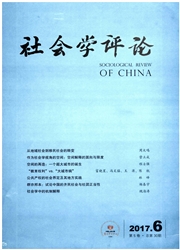

 中文摘要:
中文摘要:
本文提出了一个有关非营利组织污名的一般化分析理论。在这一理论中,污名被定义为“组织因其行为或核心属性存在合法性问题而在某种程度上被组织场域内的主要受众/利益相关者所不信任、污损和歧视”;同时,组织污名的形成机制可以用“征服”、“竞争”和“加冕”的三阶段分析架构来概述,对红十字会污名化案例的考察较为详备地佐证了这一架构的合理性;作为这一一般化理论的延伸,本文还就组织污名的影响及其应对策略进行讨论。
 英文摘要:
英文摘要:
We consider the stigmas of NP0s as a new research agenda and advance a general theory of it. In this theory, stigma is defined as "the illegitimate conducts or core characteristics of a NPO which evoke a collective stakeholder group/audience-perception that leads them to discredit, stigmatize, discriminate it across the organizational field"; and the process of stigmatization can be explained by the framework of "con- quest", "contest", "coronation"; a case study of CRCF confirms the explanation of the framework is reason- able. Based on the theory, we may find the influence of stigmas and the strategies to prevent or remover them
 同期刊论文项目
同期刊论文项目
 同项目期刊论文
同项目期刊论文
 期刊信息
期刊信息
